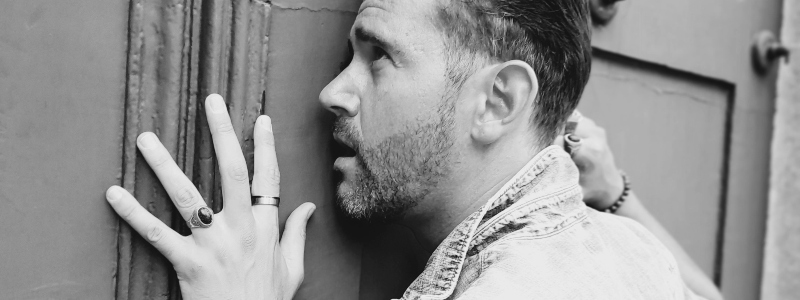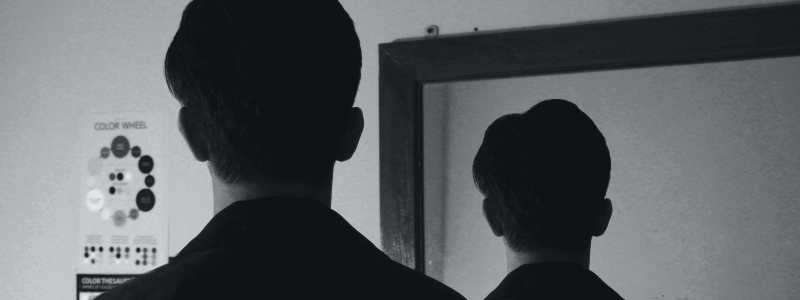In the field of social reform there is a wise principle called ‘Chesterton’s fence’ which, in simple terms, suggests that reforms should not be implemented until the existing state of affairs is understood. In other words, don’t tear down a fence until you understand why it was erected in the first place.
In the world of psychotherapy, which is more focused on the individual than the collective, Chesterton’s fence can and should be a core aspect of our work. Our role is to tread curiously and carefully at the patient’s pace, understanding with them why they do what they do, rather than pathologising their thought processes or behaviour and metaphorically tearing the fence down.
On defences
In psychotherapy we don’t refer to people’s fences but instead talk of defences and symptoms. These are similar but different in that a psychological defence is there to protect the ego (the self) and will often manifest in a symptom or set of symptoms.
We all use defences in our daily life and it can be argued that defences are necessary to protect us in the world, however, when relied upon as the primary means of relating, they range from unhelpful to destructive.
Anna Freud listed nine defences: repression, regression, reaction-formation, isolation, undoing, projection, introjection, turning against the self, and reversal. I would suggest that there are three more: sublimation, splitting and denial. Each of these warrants a blog in its own right and sits on a scale of developmental maturity and functionality. For example, splitting – the defence whereby the world and others in it (including the self) are ‘split’ into categories of good and bad, is a very early infantile defence. As is projective identification where the individual splits off parts of the self and projects them onto another. That other then finds that they identify with those (unwanted or unbearable) split-off parts.
Sublimation, on the other hand, is the capacity to direct instinctual drives into non-instinctual forms of behaviour. An example I often use is that a person with sadistic traits (and generally a narcissistic personality), can via successful sublimation become a surgeon, or conversely, fail in this endeavour and end up in prison.
Symptoms as cause
In the broad and nefarious field of so-called mental health, the trend is to increasingly take symptoms at face value and see them as the underlying issue. There are arguably two main drivers behind this trend: the first is that it is simple and avoids us spending time with a patient and understanding the meaning of the symptom; the second is that ‘disorders’ can be located in the individual, medicalised (turned into profit-making diseases) and the collective does not need to take any responsibility.
If we use the example of phobias as what I would describe as a symptom, unless the underlying function of the phobia is understood, treatment may well simply lead to the phobia manifesting in either another phobia or some other obsessive-compulsive symptom. A phobia is defined as an excessive or unnecessary level of anxiety in a specific situation or in the presence of a specific object. Now, it may be that a patient manifests an excessive fear and anxiety of spiders – thus a phobia – as a result of having been bitten by a spider on holiday. This is very different to a phobia of dentists as a result of a childhood trauma of sexual abuse that has been repressed. Therefore, understanding of the function of the symptom, a phobia in this case, is key to the treatment.
Let’s take a systemic example: A single mother with two young children presents at the GP with symptoms of depression defined in this case by feeling low, hopeless and sad. She also presents with anxiety defined by sleepless nights, feelings of agitation, restlessness and irritability. On the face of it she would seem to be suffering from depression and anxiety and some form of anti-depressant medication will most likely be prescribed. However, if we listen to this woman, we discover that she is on a zero-hours contract, is struggling to feed her kids nutritionally, has received an eviction notice from her rented accommodation and cannot pay her utility bills. I would suggest that her feelings of ‘depression’ and ‘anxiety’ are normal for her circumstances and are a systemic issue, rather than a medical one. In other words, medication is not going to be the long-term solution.
Tread with care
As psychotherapists it is our role to move with the patient, not shove them along. That does not mean we don’t challenge; however, the conditions need to be right to challenge. Equally, it does not mean colluding with a patient when they are unwilling or unable to do the work – depth therapy is not for everybody.
It means recognising that defences are there for a reason and should not be smashed down to ‘get to’ the patient. It means helping the patient understand why they have unconsciously erected the defences that they have, and then seeing whether they can risk doing without them.
Expression (symptoms) of neuroses and psychoses often have a function and protect the patient from greater psychic pain – they are never random. This is key.
Pushing a patient to bring down their defences or surrender a symptom before they are ready is at best unhelpful, and at worst can be dangerous to the mental stability of the patient.
Being mad without going mad
In ‘old psychiatry’ where symptoms were seen as meaningful rather than simply DSM diagnostic criteria, the question: ‘what is the function of this symptom?’ would be an ordinary question to consider.
In patients with what we may refer to as a ‘psychotic structure’ characterised by inwardly-held delusional beliefs that would probably not manifest in the outside world, the beliefs would serve the function of somehow stabilising the patient so that they did not enter into a full-blown psychotic episode. In other worlds they would be mad without going mad.
With a psychotic structure it is not the action that would indicate said structure but the meaning behind it. An example:
You are walking down the street and encounter two women standing some twenty yards apart. Neither is aware of the other and both are holding open umbrellas.
You approach the first and ask her: ‘Why are you holding up an umbrella when it is not raining? She responds: ‘I have just had my hair done and am going to a party tonight – I thought I felt a drop of rain and don’t want to take the risk.’ This response is rational and based on reality if perhaps ever so slightly neurotic.
You approach the second women and ask her the same question to receive the following response in a whisper: ‘Shhh… There is an alien craft watching me and as long as I am under the shield (umbrella) it cannot read my thoughts’. This is clearly a delusion and would be indicative, in the absence of other factors such as substance use, of a psychotic structure.
Were we to forcibly remove the umbrella either through coercive challenging or physical force, it is likely that this would cause significant distress to the second women and may well push her into a full-blown psychosis. The behaviour therefore protects her not from aliens, but from her own internal mental state which she experiences as ‘alien’ and persecutory.
Mark Vahrmeyer, UKCP Registered, BHP Co-founder is an integrative psychotherapist with a wide range of clinical experience from both the public and private sectors. He currently sees both individuals and couples, primarily for ongoing psychotherapy. Mark is available at the Lewes and Brighton & Hove Practices.
Further reading by Mark Vahrmeyer –
I worked as a Psychotherapist with Death. Here’s what I learnt
What is the difference between loving and longing?
Why do we expect women to smile and not men?
Is there something wrong with me for hating Christmas?














